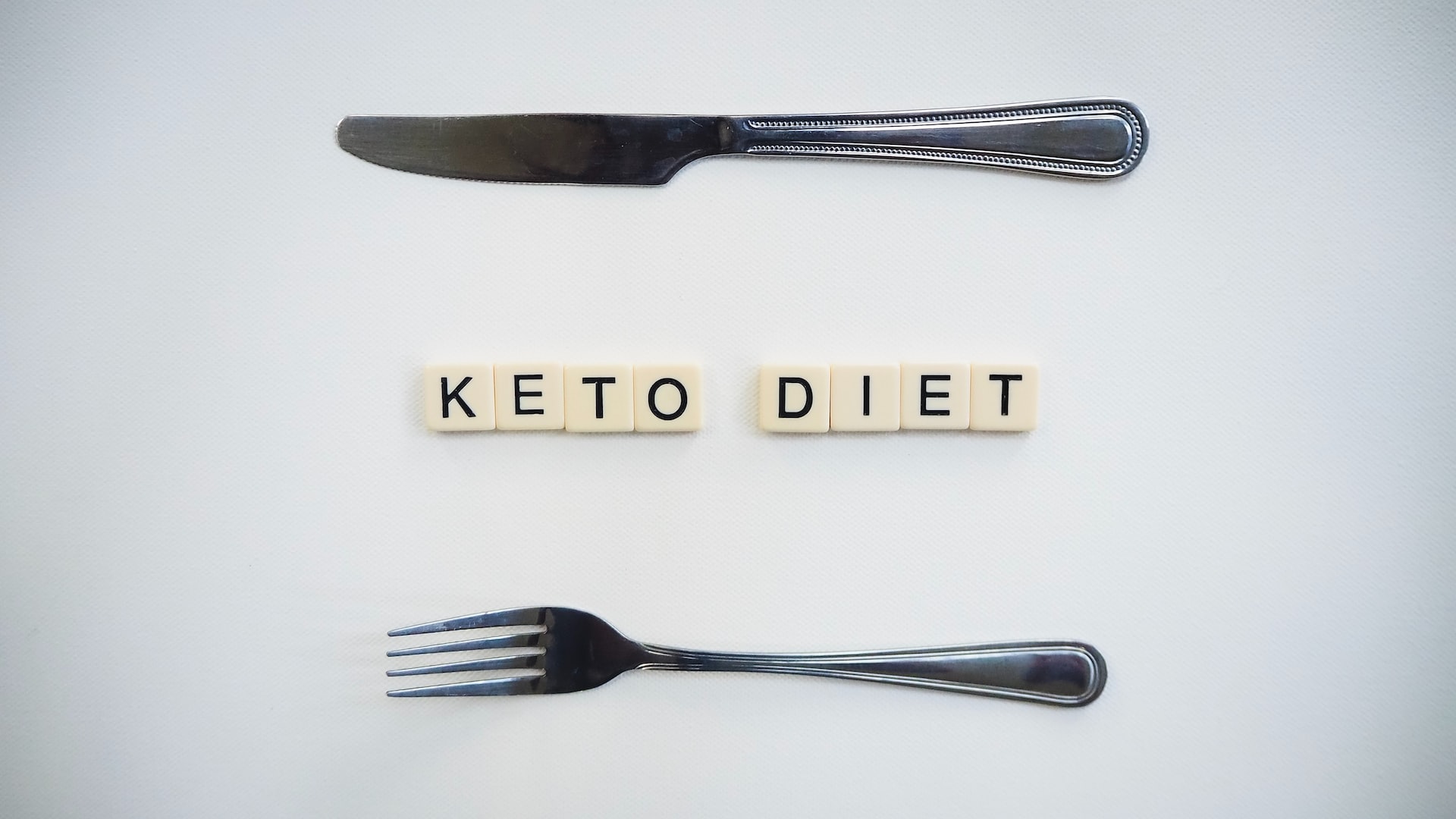Is the Ketogenic Diet All It’s Cracked Up to Be?
Perhaps you’ve heard of the ketogenic diet.
The ketogenic diet isn’t necessarily new, as diets like the “Atkins diet” and the “South Beach Diet” rely on ketosis for weight loss and to help regulate BMI.
But, it’s becoming increasingly popular now that the Internet has spit it out into pop-culture and now that it’s being better understood.
The ketogenic diet involves consuming an extremely low (to no) amount of carbs. The benefit is that your body switches to a fat burning protocol called ketosis.
Essentially, your body’s not using carbs for energy, it’s just using fat.
Which actually isn’t all that bad for you (depending on your lifestyle and predisposition to certain health conditions).
The one caveat I do want to make is this:
There’s a difference between building your own, well-balanced ketogenic diet and subscribing to the idea you can use a “one-size-fits-all” keto diet.
Don’t know what I’m referring to?
Some people (even some doctors) have decided to build diets consisting of liquid food that is “mainlined” into the body via feeding tubes.
Listen, feeding tubes are well and good in a hospital setting where you don’t have the strength to eat. Outside of that, they’re really not the best idea.
However, if your diet consists of healthy fats (CLA, Omega-3, monounsaturated and unsaturated fats) from nuts and meat along with healthy protein (meat, nuts, and some plant based protein), then a ketogenic diet can provide you with a series of health benefits.
Let me show you.
The Reasons a Ketogenic Diet Isn’t Bad For You.
1. Ketogenic diets help burn and use fat reserves: I’ve written about this before, but your body does quite well running off of fat. In fact, your brain does best when supplied by ketones, which are provided only when your body is in ketosis.
The simple way to understand how ketosis works is to understand how fat works inside the body.
When the body breaks down fat, ketones are formed.
And ketones are what are then used to “fuel” your body.
The truth is that as far as energy needs are concerned, your muscles (including your heart) are much better adapted to use ketones for energy.
Here’s what Mark Sisson of Mark’s Daily Apple says:
“ Glucose is not the preferred fuel of muscle cells under normal human resting metabolic conditions or even under most normal human movement patterns (exercise).
Fat is. Sure, given an unlimited supply of glucose and regular refilling of glycogen stores, skeletal muscle will burn through it during exercise the same way a fire burns through kindling when that’s all you have to offer.
The body can shift carbohydrate oxidation to keep up with intake.
But skeletal muscle can burn fat with great efficiency (and far less oxidative fallout) at relatively high outputs for very long bouts. Cardiac muscle actually prefers ketones,
And your brain prefers glucose.”
Glucose is a sugar, the same kind of sugar transported in the blood.
But, if you eat primarily fat, it means your glucose levels will be low. Well, your body can handle that perfectly fine.
When your blood sugar (glucose) is low, your liver produces a ketone-like substance called beta-hydroxybutyrate (or beta-hydroxybutyric acid).
And this molecular compound is able to power your brain with supreme efficiency.
In truth, glucose shouldn’t be used as a steady energy source for the brain.
In fact, it should be stored as glycogen for only the most desperate of times when it helps you with your fight or flight response (or if you’re quite active, more on that later)
2. Ketogenic diets help you fight disease: Because your body relies on ketones for energy and shuns glucose it does a few things for you.
One is it helps keep insulin levels in check.
Insulin levels that go up and down like the price of gas aren’t ideal for long-term health.
We know a normal diet with regular levels of glucose can send your insulin levels into the unhealthy range with ease. When you’re in ketosis, insulin levels are normalized, and this gives your body the chance to operate as it was designed.
In fact, when insulin is brought to normal to low levels, it actually prompts the body to release beneficial hormones like growth hormone along with other powerful growth factors.
Not to mention it has been shown to help resist the formation of Age-related memory loss along with weak immune health. Since the brain needs to be supported to remain healthy and a ketogenic diet gives the brain its preferred source of fuel, it’s an absolute no-brainer that ketogenic diets can help protect the brain from degeneration.
There’s a great deal of research supporting the claim for ketosis to help fight disease and none of it should be ignored because it goes against the traditional model of nutrition that’s touted as the “gold standard.”
What about all of the negatives you hear about the ketogenic diet?
Well, I won’t sugar coat it, there are some downsides of this diet.
But they’re limited to a certain subset of the population, and if you transition into a ketogenic diet healthily and don’t do it because you’re just trying to lose a few pounds for the weekend, I don’t think you have much to worry about.
In terms of the pitfalls, Jonathan Deprospo names 4, and I’m pretty comfortable sharing what he wrote.
PITFALL 1
During the first few weeks of the ketogenic diet, the body has to go through the “metabolic shift,” as Dr. Mauro DiPasquale calls it. While going through this, the body will experience a small degree of fatigue, brain fog, and even dehydration due to the increased water loss associated with ketoic-induced diuresis and water loss from depletion of glycogen stores.
Once the body gets used to manufacturing ketones as the main energy substrate, the body actually has more energy than it previously had, and you won’t have to be fighting through all those low-blood-sugar crashes your high-carb meals previously gave you. Additionally, hydration should be an area of high priority, especially before, during, and after exercise.
PITFALL 2
Blood-lipid profile is also a concern on the ketogenic diet due to the staggering amounts of saturated fats in the diet, although the diet can be centered around healthier unsaturated fats—which isn’t as fun as eating an egg and cheese omelet, fried in butter, with bacon on the side!
Blood-lipid-profile issues are experiencing much debate; some people following the ketogenic diet will experience a drop in cholesterol levels, but for some people, cholesterol levels will increase.
PITFALL 3
Because carbohydrates are restricted to less than 50 grams a day, the issue of micronutrient deficiencies can occur. Thiamin, folate, calcium, iron, potassium, and magnesium are typically inadequate in low-carb diets. The best thing to do to avoid this is to make sure you take a high-quality multivitamin to ensure you get 100 percent of the daily value. Also supplementing with a fiber supplement is a good idea to make sure your plumbing doesn’t get clogged.
PITFALL 4
Ketoacidosis occurs when the level of ketones in the blood gets out of control, which poses a severe health risk for diabetics. When massive quantities of ketones are produced, the pH level of the blood drops, creating a high-acidic environment. Nondiabetics need not fear, as the regulated and controlled production of ketone bodies allows the blood pH to remain within normal limits.
All in all, I think the ketogenic is all it’s cracked up to be.
It meets many of the standards I feel are important to a healthy diet, especially if you’re relying on organic produce and fats and pasture-raised meats.
The one thing I will mention:
If you’re an athlete whose sport requires intense, grueling exercise I might recommend you consume an adequate amount of carbs.
This can help you fuel your workouts so you can work longer and harder.
Talk soon,
Dr. Wiggy
www.HealthAsItOughtToBe.com


